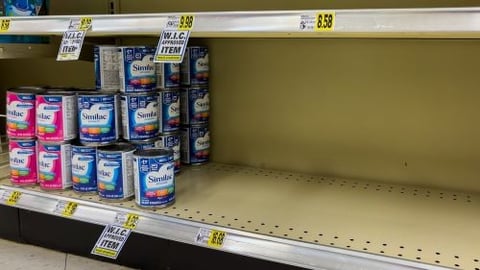Grocery Industry Provides Feedback for White House Conference on Hunger, Nutrition and Health
Ahead of the first White House Conference on Hunger, Nutrition and Health in more than 50 years, industry groups and retailers are making their voices heard. The Biden Administration is hosting the conference in September.
FMI – The Food Industry Association recently released its 2022 collective report to the conference, based on extensive insights gleaned from collaborations with members in the food industry. Reflecting the conference’s pillars of food access/affordability, the integration of nutrition and health and the empowerment of consumers to access healthy choices, the report maps out the industry’s commitments and shares recommendations for government action. The report also provides several examples of FMI members’ initiatives and programs aimed at building a healthier future for Americans, from expanding meal donations to providing the services of nutritionists and registered dietitians to bolstering educational messages that align with the Dietary Guidelines for Americans.
“The time is right to address the critical challenges faced by millions of Americans in accessing and affording food,” said Leslie Sarasin, FMI president and CEO. “The Conference on Hunger, Nutrition, and Health provides an historic opportunity for all stakeholders to join in the goal of ending hunger and food insecurity, reducing diet-related diseases, and improving nutrition. To that end, FMI’s 2022 Collective Report sets feasible, actionable, and measurable goals for our members to commit to improving food access and affordability, prioritizing the role of nutrition and food security in overall health, and enabling communities to make informed, healthy choices.”
As it assessed feedback and worked on its recommendations for the White House Conference, FMI hosted a convening with its members and industry leaders. Representative James P. McGovern (D-Mass.) joined the event and underscored the importance of the grocery industry’s involvement with this milestone event. “Grocers serve as convenient destinations for food access – and they can help policymakers bridge the gap between food and nutrition insecurity to build healthier, hunger-free communities across the country,” he said. “I am encouraged by FMI’s commitment to partnering with the federal government to find permanent solutions to this issue – let’s come together and develop a road map to finally end hunger in this country.”
In addition to the FMI member convening, individual retailers have also provided input for the White House Conference on Hunger, Nutrition and Health. Last week, The Kroger Co. participated in a July 14 national convening hosted by the Bipartisan Policy Center and the Task Force on Hunger, Nutrition and Health (of which FMI's Sarasin is a member), and featuring input from industry representatives, nonprofit organizations, community groups and U.S. Congressional leaders. During that convening, Kroger shared its Zero Hunger | Zero Waste social and environmental impact plan and its efforts to support nutrition and health.
"Kroger's position at the nexus of fresh food and healthcare gives us a unique perspective on the role nutrition plays in prevention and mitigation of chronic illness," said Rodney McMullen, Kroger's chairman and CEO. "We are proud to share what we have learned through our Zero Hunger | Zero Waste commitment to help create communities free of hunger and waste as well as our Food As Medicine platform that helps people lives healthier lives.”
Colleen Lindholz, president of Kroger Health, noted that the White House conference is being held at a pivotal time. "Today, more Americans are sick than are healthy. Simply put, this is unacceptable, and we thank the Task Force for taking action. At Kroger, we aspire to make a real difference in the lives of our customers and associates by making it easier to access, choose and enjoy healthy foods, while connecting them to expert and trusted health care providers,” she declared.
The last White House Conference on Food, Nutrition and Health was held in 1969 when Richard M. Nixon created a coalition to improve the nutritional well-being of Americans and to “put an end to hunger in America for all time.”
Serving more than 9 million customers daily through a digital shopping experience and 2,800 retail food stores under a variety of banner names, Cincinnati-based Kroger is No. 4 on The PG 100, Progressive Grocer’s 2022 list of the top food and consumables retailers in North America.






